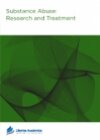


 Gregory Stuart
Gregory Stuart
Gregory Stuart joined the Department of Psychology at the University of Tennessee-Knoxville in 2008. He completed his B.A. at the University of Michigan (in 1990) and received his Ph.D. (in 1998) from Indiana University while working under the supervision of Professor Amy Holtzworth-Munroe. He completed a one year clinical internship at the Brown University Clinical Psychology Training Consortium and a two year postdoctoral fellowship at the Brown University Center for Alcohol and Addiction Studies.
From 2000-2008, he worked in the Department of Psychiatry and Human Behavior at the Alpert Medical School of Brown University. He maintains an affiliation there, and he is the Director of Family Violence Research at Butler Hospital. He serves as an adjunct faculty member at the Brown University Center for Alcohol and Addiction Studies. For six years he was the Director of the Adult Psychopathology Track of the Brown University Clinical Psychology Training Consortium. He served a two-year term as co-president of the Couples Research and Therapy Special Interest Group at the Association for Behavioral and Cognitive Therapies.
Dr. Stuart’s program of research has a particular emphasis on the role of substance use and abuse in intimate partner violence perpetration and victimization. His work addresses a broad spectrum of factors that are relevant to the etiology, classification, assessment, prevention, maintenance, and treatment of intimate partner violence. His research has shown that intimate partner violence perpetration and victimization are overrepresented in populations of individuals in treatment for substance abuse, and that substance abuse is overrepresented in men and women court mandated to attend batterer intervention programs. His work examines the impact of substance abuse treatment on the prevalence and frequency of intimate partner violence and psychological aggression, as well as the effects of substance abuse treatment on other domains of relationship and family functioning. Dr. Stuart’s work also examines whether incorporating substance use treatments into batterer intervention programs improves outcomes for men and women arrested for domestic violence. Dr. Stuart is interested in conducting treatment outcome research in general, and specifically for family violence and substance misuse. His work focuses on family violence throughout the lifespan, including child abuse, dating aggression, intimate partner violence, and elder abuse and mistreatment.
Dr. Stuart’s work includes approximately 200 publications, 4 National Institute on Alcohol Abuse and Alcoholism-funded grants in which he is/was the principal investigator, and an additional 23 grants in which he has served as a coinvestigator, mentor, or consultant. He has reviewed research grants for the NIAAA Clinical and Treatment subcommittee, the Centers for Disease Control, the Harry Frank Guggenheim Foundation, and the Social Sciences and Humanities Research Council of Canada. He is a standing member of the Clinical and Pediatric Extramural Loan Repayment Program grant review committee at NIAAA.
Dr. Stuart actively participates in teaching and mentoring. He supervises graduate students at the University of Tennessee-Knoxville and postdoctoral research fellows at Brown University. For years, he was actively involved in training psychology interns, postdoctoral fellows, and psychiatry residents. He serves/served as a mentor on 3 T32 postdoctoral training grants funded by NIAAA, NIDA, and NIMH, as well as on individual F31 and F32 grants, and a fellowship grant funded by the Canadian Institute of Health Research. He was the recipient of the National Center of Excellence in Women’s Health Outstanding Faculty Mentoring Award, as well as the Outstanding Teaching Award in Psychology from Brown University. He has also received Research and Creative Achievement awards from the University of Tennessee. His is a Fellow in Division 50 (Society of Addiction Psychology), Division 43 (Family Psychology), and Division 12 (Clinical Psychology) in the American Psychological Association. He is also a Fellow in the Association for Psychological Science and the American Association for the Advancement of Science. He currently serves as an ad hoc reviewer for 48 scientific journals and on numerous editorial boards.
The Role of the Editor in Chief
The editor in chief is responsible for editorial decision-making on papers submitted to the journal. The editor in chief is also responsible for editorial matters that include but are not limited to journal supplements, the journal's aims and scope, the editorial board and volunteer peer reviewer pool, editorial assessment of video abstracts, assignment to published papers of endorsements, and for consulting on pre-submission inquiries from authors.
Each promise from the team at Substance Abuse: Research and Treatment has been backed up by action. Well organized team, prompt cycle times throughout the process of article submission, review, acceptance and article proofs. You guys have been fantastic. No wonder you've garnered such a good reputation in such a short time.
Facebook Google+ Twitter
Pinterest Tumblr YouTube